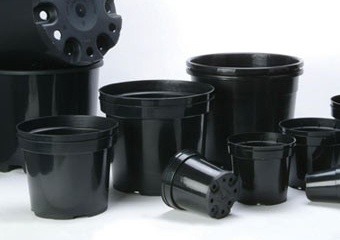Recolight welcomes revised WEEE collection targets for lighting
Recolight, a waste electronic and electrical equipment (WEEE) compliance scheme for the UK lighting industry, has welcomed a higher national target for waste lamp recycling for 2018 from the Department for Environment, Food and Rural Affairs (Defra), stating the risks of a lower target ‘outweigh’ those of a higher target.
Following the release of the Environment Agency’s (EA) WEEE collection figures on 1 March, it was revealed that the UK’s lamp recycling rate had increased to 48.5 per cent, while the recycling rate for luminaires also increased to 7.5 per cent - despite missing the 6,132 tonne target for lighting WEEE collection in 2017, with 5,383 tonnes of lighting WEEE collected.
For 2018, Defra had initially proposed a target of 5,256 tonnes for lighting WEEE but, following a consultation in early March, this has been increased to 5,517 tonnes.
Commenting on the news, Recolight CEO Nigel Harvey said: “There is currently significant volatility in waste lamp collections. The tonnage collected increased from 2015 to 2016, but then fell back in 2017. A number of different factors are driving these changes. Top of the list is the large-scale adoption of LED integrated luminaires, which result in large quantities of fluorescent tubes becoming waste before they reach end of life.”

The phasing out of fluorescent lamps to be replaced with longer-life, LED-integrated luminaires has been floated by Harvey as a possible explanation for the instability in lighting WEEE collection rates, which increased to 5,645 and 6,132 tonnes collected in 2015 and 2016 before falling back to 5,383 tonnes in 2017, stating last year that we had reached ‘peak lamp WEEE’.
Harvey continued: “Setting the correct WEEE target is not straightforward. It requires a careful assessment of the tonnage of WEEE that is likely to arise, but with a dash of caution that nudges the target slightly higher. The risks of a lower target (some disruption to local authority collections) outweigh the risks of a higher target (compliance fees are paid by some WEEE schemes).”
Unambitious targets
Despite Recolight’s welcoming of the new targets for lighting WEEE, the wider collection targets for 2018 have been met with dismay by industry. Defra has proposed reducing overall targets for 2018 by 14 per cent, in response to the news that the 2017 target was missed by nearly 100,000 tonnes: 522,901 tonnes of WEEE was collected against the 2017 target of 622,033. This represents a collection figure almost 60,000 tonnes shy of that collected in 2016.
The first draft of the 2018 targets from Defra sets out a proposed aim of 532,818, which is a 14 per cent decrease from the missed 2017 target. This means compliance schemes would be required to collect only 9,919 tonnes more than was achieved in 2017.
At the time, Roy Hathaway, ESA Policy Adviser, said: “Defra should heed the criticism from right across the waste management sector that reducing the WEEE collection targets by 14 per cent is not the right way to tackle the shortfall in last year’s targets, much less to move the industry forward to meet the higher targets for 2019 and beyond.”
WEEE charges
And despite welcoming the proposed lighting WEEE collection targets, Recolight has criticised the EA’s new charging regime for its regulation of the WEEE system, which will be applicable from 1 January 2019 and aims to cover the costs of the EA’s work.
The EA will be introducing a £12,500 annual subsistence charge for Producer Compliance Schemes as well as increased annual producer registration charges, which from 2019 will be:
- £30 for each member of the scheme who is a small producer
- £100 for each large producer not registered for VAT
- £100 for each large overseas producer not registered for VAT
- £375 for each large overseas producer registered for VAT
- £750 for all other scheme members
Commenting on the news, Recolight CEO Nigel Harvey said: “It is disappointing that the EA did not take on board comments made during the consultation process. This increase will be particularly difficult for small and medium sized companies.
“The EA were presented with alternative, fully costed funding options that would have limited the impact on businesses with a turnover below £1 million. These alternatives would have spread the increase more fairly across the range of operators in the WEEE system. However, they were ignored, in favour of this excessively costly solution."








